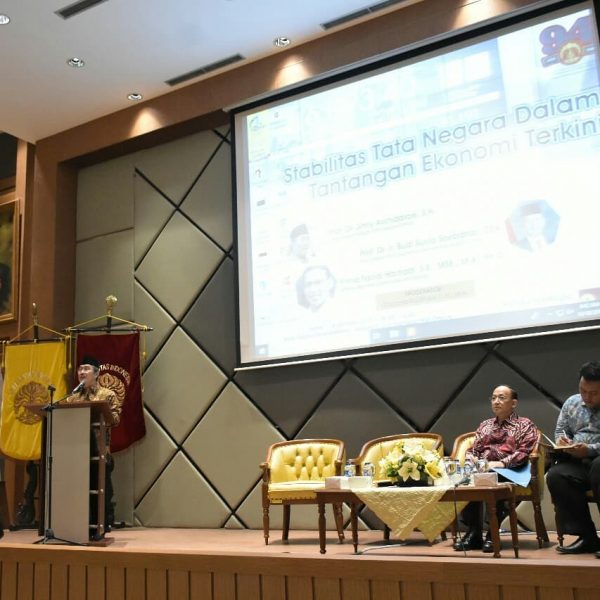Understanding Emergency Constitutional Law
As a part of the 94th Anniversary Celebrations of the Faculty of Law Universitas Indonesia, the Field of Study of Constitutional Law of the Faculty of Law held a National Seminar entitled “Constitutional Stability in the Latest Economic Challenges” on October 18, 2018.
The seminar which took place at the Djokosoetono FHUI Convention Center was full of more than 250 participants. On this occasion Professor Jimly Asshiddiqie conveyed the importance of understanding emergency constitutional law under these conditions. That an emergency in a country can occur when certain situations such as war, disaster, social conflict which is triggered by other instability. Jimly pointed out that emergency constitutional law also applies when a disaster occurs where general constitutional law cannot function so that it requires special constitutional law namely Emergency Constitutional Law.
Another speaker, Professor Budi Soesilo Soepandji, who is the Governor of Lemhannas 2011-2016, stated the importance of the campus as the basis for change. He further stated “… campuses namely lecturers and students must remind policymakers, that changing decisions will result in an uncertain atmosphere. And this has the potential to cause a crisis.” Therefore it is important for the FHUI academic community to be able to contribute ideas, warning and solutions in the current economic situation prior to the crisis.
On the other hand, the third speaker Dr. Fithra Faisal Hastiadi emphasized that Indonesia is aware of the trade war between the United States and China. And now efforts are needed to balance the economic balance well.
The Chairperson of this activity committee, Qurrata Ayuni, intentionally initiated this activity with the aim of providing an understanding of one of the issues of constitutional law namely Emergency Constitutional Law. “There is little discussion about Emergency Constitutional Law in class lecture, and it is necessary for the academic community to understand the Emergency Constitutional Law in the present time.”

